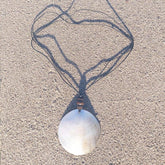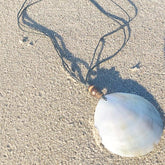When the Lifeline is Cut : The Fallout of Aid Withdrawal
I was listening to a BBC World Service programme recently that left me shaken. It unpacked the quiet devastation unfolding across the Global South as US overseas aid is withdrawn or frozen. The tone wasn’t sensationalist—it didn’t need to be. The first hand stories were sobering enough.
Overseas aid has long been a contentious topic in the US political arena, but for communities in the Global South, it's not an abstract debate. It’s a lifeline. And when that lifeline is cut, the consequences ripple through lives and landscapes.
Climate Change: Paying for a Crisis They Didn't Cause
Perhaps the most bitter irony is that many of the communities hardest hit by climate change are also the least responsible for it. Countries in sub-Saharan Africa, parts of South Asia and island nations in the Pacific are grappling with rising sea levels, unpredictable rainfall, desertification, and increasingly violent storms.
Much of the US’s overseas aid had been channelled into helping these communities adapt—building flood-resistant infrastructure, supporting sustainable agriculture, and providing early-warning systems for extreme weather events. With funding disappearing, so too are these lifelines. Smallholder farmers in places like Malawi and Nepal who once received support to switch to drought-resistant crops are now left exposed to climate shocks, their food security dangling by a thread.

Women’s Empowerment: Programmes Unravelling
Women’s empowerment programmes are often the first to be hit when funding dries up. These are the same programmes that have helped women and girls gain access to education, reproductive healthcare, and protection from gender-based violence. In rural Uganda, for instance, I learned of community centres that once provided safe spaces and vocational training for women—now forced to close due to lack of funds. In Afghanistan, support for girls' education has dwindled, leaving a generation of girls on the edge of being forgotten.
The loss is not just economic or educational—it’s generational. When women are empowered, entire communities benefit. When that empowerment is stripped away, the impact runs deep.

HIV & Public Health: Setbacks We Can't Afford
One of the most successful and widely praised aspects of US overseas aid was its commitment to fighting HIV and AIDS through the PEPFAR programme (President’s Emergency Plan for AIDS Relief). Since its launch in 2003, it’s estimated to have saved over 25 million lives.
But even that programme has come under threat. Clinics that once offered free HIV testing and antiretroviral treatment in Kenya, Mozambique, and Haiti are now scaling back. Health workers face layoffs. Supply chains for life-saving drugs have been interrupted. And people living with HIV—many of whom already face stigma and isolation—are once again being pushed into the shadows.

What Do We Value?
I can’t help but ask: what does it say about our world when the most vulnerable are the first to be abandoned? When the political tides in one wealthy nation can determine whether a mother in Lesotho can access medication, or whether a farmer in Bangladesh can plant a crop that will survive?
This isn’t about charity. It’s about justice. It’s about acknowledging global interconnectedness and historic responsibility. It’s about standing in solidarity with those who are doing the hard work of resilience in the face of multiple, overlapping crises.
But what can we do, as ordinary people?
More than we might think...
We can vote with our voices—contacting elected representatives, wherever we live, to insist that foreign aid remains a priority, especially for climate action, gender equality, and public health. Aid isn’t just a budget line—it’s a matter of life and death.
We can support grassroots organisations that continue the work even when governments back away. Many NGOs and community-based groups in the Global South are led by locals who know their context and how to adapt. Our support—financial or otherwise—helps them keep going.
We can stay informed and help others stay informed. Sharing trusted journalism, raising awareness in our communities, challenging myths about aid being wasted or ineffective—all of this shapes public opinion, which in turn influences policy.
And we can change how we consume—choosing products and services from companies and enterprises that support fair trade, climate justice, and women’s empowerment, rather than those that exploit global inequalities.
Hope isn’t naïve when it’s coupled with action. We may not be able to solve every crisis, but we can refuse to look away. And sometimes, refusing to look away is exactly where change begins.












1 comment
So eye-opening. These insights really stick with me.
Thank you for sharing!
Leave a comment
All blog comments are checked prior to publishing